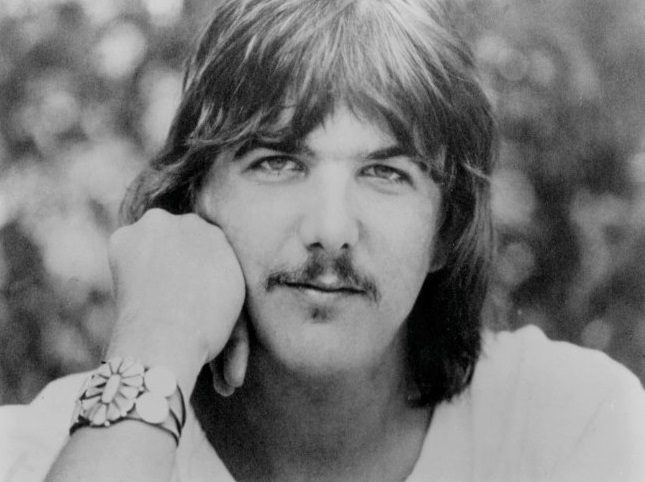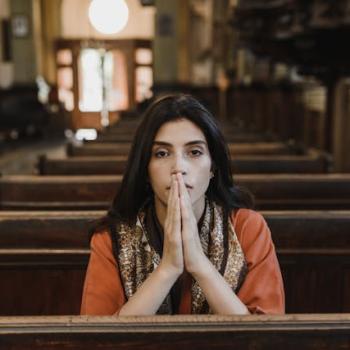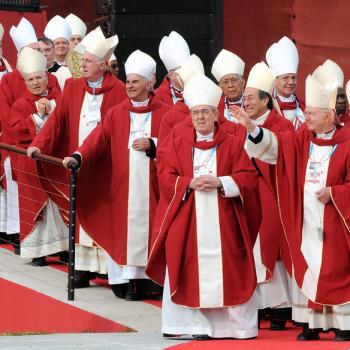I heard Gram Parsons’ song “In My Hour of Darkness” on the radio the other day and it has been haunting me ever since.
Parsons was the Sixties musician who discovered traditional country music, bringing the two genres together through his involvement with the Byrds and the Flying Burrito Brothers, thus pioneering country rock, alternative country, and the Outlaw Country channel on Sirius FM, which put the song into my head. (Never mind that rock music had its origins in country music, with its marriage of poor white Southerners’ guitars with poor black Southerners’ rhythm & blues. See Elvis Presley and Sun records. And Gram Parsons’ innovations are not to be confused with rock music’s influence on today’s country music, or, even worse, with pop music’s detrimental effects on both country and rock.)
Parsons was yet another of the tremendously talented artists who died stupidly of a drug overdose. He was 26. “In My Hour of Darkness,” recorded on his brilliant LP Grievous Angel, was probably the last song he wrote, doing so with his collaborator Emmylou Harris whom you can hear on the performance. The song references three of his friends who had died recently, but it seems to presage his own demise, especially with the “young man” who played a silver string guitar (though he is probably referring to blue grass legend and Byrds guitarist Clarence White). Here is a good essay about Parsons, his contributions, and this song.
Give it a listen:
Read the complete lyrics.
Consider the refrain:
In my hour of darkness
In my time of need
Oh, Lord grant me vision
Oh, Lord grant me speed
This is an anguished, poignant prayer. It expresses exactly what we yearn for in our hours of darkness. In darkness, we need vision. That is, we need to see. Darkness, of course–whether literal, psychological, or figurative–is precisely the inability to see. If we could just see where we are going, what it all means, the good things that are around us, we wouldn’t be in such despair. So the prayer is “Oh, Lord grant me vision.”
As for the prayer for “speed,” this is the plea for this dark time to be over quickly. These times of darkness do not (usually) last. It is an “hour” of darkness. These moods (usually) pass. The speaker knows this. But right now, in his “time of need,” the darkness seems overwhelming. He is praying that he can get through this, and fast.
And yet, the Lord doesn’t always give us “vision” in our hours of darkness. “For we walk by faith, not by sight” (1 Cor 5:7). Walking by faith is what we ultimately must do when we “walk through the Valley of the Shadow of Death”–realizing that “you are with me” (Psalm 23:4).
This reminds me of the work of another wildly creative artist who struggled with the same sense of desolation: John Bunyan. In his Pilgrim’s Progress, Christian’s road to the Celestial City takes him through the Valley of the Shadow of Death:
{155} Now, at the end of this valley [the Valley of Humiliation where he does battle with the demon Appolyon] was another, called the Valley of the Shadow of Death, and Christian must needs go through it, because the way to the Celestial City lay through the midst of it. Now, this valley is a very solitary place. The prophet Jeremiah thus describes it: “A wilderness, a land of deserts and of pits, a land of drought, and of the shadow of death, a land that no man” (but a Christian) “passed through, and where no man dwelt.” [Jer. 2:6]
Now here Christian was worse put to it than in his fight with Apollyon, as by the sequel you shall see. . . .
Over that Valley hangs the discouraging clouds of confusion. Death also doth always spread his wings over it. In a word, it is every whit dreadful, being utterly without order. [Job 3:5; 10:22] . . . .
I took notice that now poor Christian was so confounded, that he did not know his own voice; and thus I perceived it. Just when he was come over against the mouth of the burning pit, one of the wicked ones got behind him, and stepped up softly to him, and whisperingly suggested many grievous blasphemies to him, which he verily thought had proceeded from his own mind. This put Christian more to it than anything that he met with before, even to think that he should now blaspheme him that he loved so much before; yet, if he could have helped it, he would not have done it; but he had not the discretion either to stop his ears, or to know from whence these blasphemies came.
{163} When Christian had travelled in this disconsolate condition some considerable time, he thought he heard the voice of a man, as going before him, saying, “Though I walk through the valley of the shadow of death, I will fear no evil, for thou art with me.” [Ps. 23:4]
{164} Then he was glad, and that for these reasons:
First, Because he gathered from thence, that some who feared God were in this valley as well as himself.
Secondly, For that he perceived God was with them, though in that dark and dismal state; and why not, thought he, with me? though, by reason of the impediment that attends this place, I cannot perceive it. [Job 9:11]
Thirdly, For that he hoped, could he overtake them, to have company by and by. So he went on, and called to him that was before; but he knew not what to answer; for that he also thought to be alone. And by and by the day broke; then said Christian, He hath turned “the shadow of death into the morning”. [Amos 5:8]
Christian finds that he is not alone, that others who fear God have gone through this hour of darkness too, and he does find “company.” Indeed, the support of people who understand can be a strong help in times of depression. Most importantly, he realizes that God is with him, “though in that dark and dismal state,” though because of the darkness he cannot perceive Him. Nevertheless, the pilgrim is convinced that He is there despite his lack of sight, and this helps him to keep slogging ahead. In short, he is walking by faith and not by sight.
Indeed, the other person whom he hears in the darkness is Faithful, who becomes his friend and companion throughout the rest of his journey to the Celestial City. That is, the pilgrim finds Faith. It is precisely in his hour of darkness that he experiences the depths of what faith is.
Photo: Gram Parsons, Reprise Records [Public domain] via Wikimedia Commons














